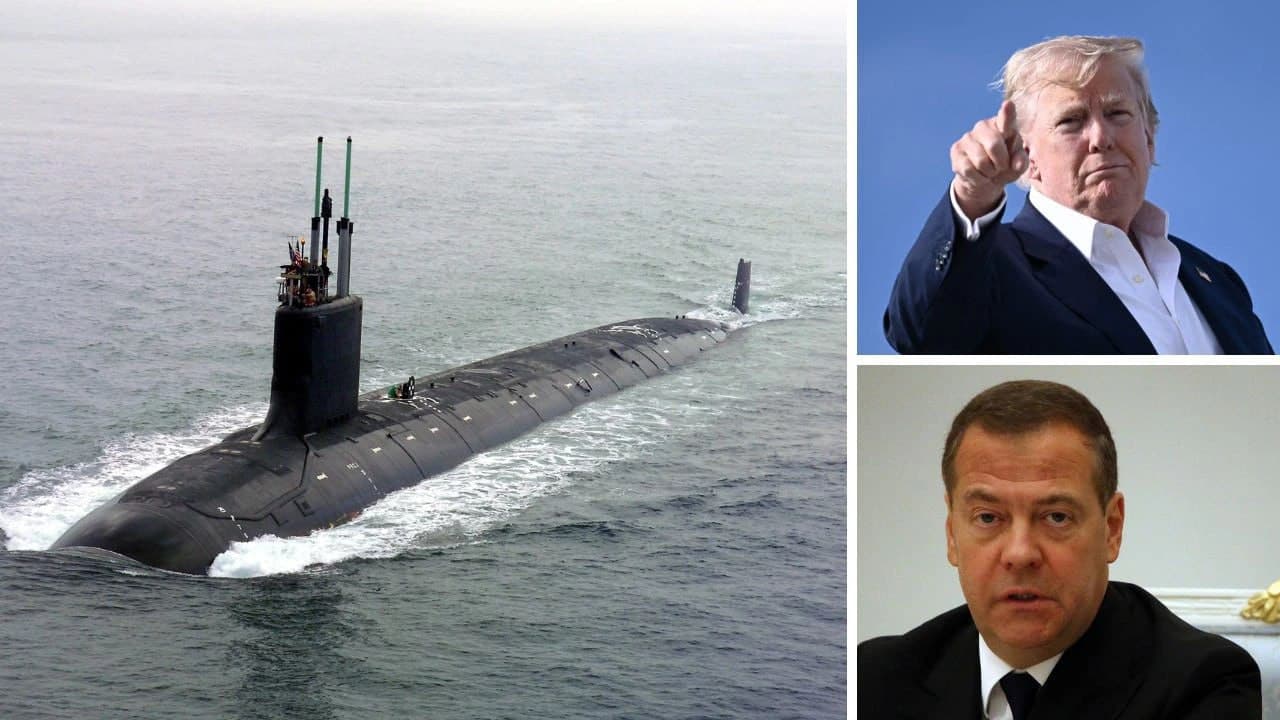Kremlin Responds Cautiously to Trump’s Nuclear Submarine Redeployment Amid Tensions
In a significant geopolitical development, Kremlin spokesman Dmitry Peskov has responded to former President Donald Trump"s announcement regarding the redeployment of two U.S. nuclear submarines to unspecified "certain regions." This move, which has raised alarms in international circles, comes in the wake of escalating nuclear rhetoric from both the U.S. and Russia. Peskov emphasized Russia"s cautious stance on nuclear non-proliferation, urging all nations to tread carefully in their nuclear discourse.
Background & Context
The backdrop to this recent tension traces back to the ongoing conflict in Ukraine and the broader U.S.-Russia relations that have soured since 2014. Trump"s announcement, made in light of comments from former Russian Prime Minister Dmitry Medvedev, who threatened nuclear action against the U.S., highlights the precarious nature of current global security dynamics. Medvedev referenced Russia"s "Dead Hand" system, a Cold War-era mechanism designed to ensure a retaliatory strike in the event of a nuclear attack, which adds a layer of urgency to the discourse surrounding nuclear capabilities.
Historically, both nations have been engaged in a delicate balance of power, with nuclear arsenals serving as a deterrent. However, recent developments suggest that this balance is becoming increasingly fragile, as both sides exchange threats and military posturing. The U.S. decision to redeploy nuclear submarines can be interpreted as a strategic move to assert dominance and deter perceived aggression from Russia.
Key Developments
In his remarks, Peskov stated, "Russia is very cautious regarding nuclear non-proliferation, and we believe that everyone should be very careful about nuclear rhetoric." He reiterated the stance that "there can be no winner in a nuclear war," a sentiment echoing the broader international consensus on the catastrophic consequences of nuclear conflict. Peskov’s comments reflect a desire to avoid escalating tensions further, indicating that Russia is not seeking a confrontation despite the provocative nature of U.S. military maneuvers.
The Kremlin"s response is significant not only for its content but also for its tone, suggesting a preference for diplomacy over open conflict. Peskov’s insistence on avoiding "polemics" indicates a cautious approach, likely aimed at de-escalating a potential arms race while maintaining Russia’s strategic posture. This perspective is crucial as the global community watches closely for signs of further military actions or diplomatic engagements.
Broader Impact
The implications of these developments extend beyond the immediate U.S.-Russia relationship. Analysts suggest that the redeployment of nuclear submarines could provoke reactions from NATO allies and other nations that view this as an escalation of military readiness. The potential for a renewed arms race raises concerns about the stability of the global security framework, particularly as other nations may feel compelled to bolster their own military capabilities in response.
Experts have noted that such actions could undermine decades of arms control agreements, as both superpowers appear to be moving further away from diplomatic resolutions. The potential for miscalculation in this charged atmosphere is high, with the risk of unintended consequences looming large. Historical precedents remind us of the dangers posed by nuclear brinkmanship, underscoring the urgent need for dialogue and conflict resolution.
What"s Next
As tensions continue to mount, the international community is left wondering what the next steps will be for both the U.S. and Russia. Observers are keenly watching for any diplomatic overtures that may emerge in the coming weeks, particularly as the U.S. navigates its foreign policy under the current administration. The potential for further military deployments or countermeasures from Russia remains a critical point of concern.
In light of these developments, nations must remain vigilant and proactive in addressing the risks associated with nuclear escalation. As previously reported, there are ongoing discussions about the future of arms control treaties that could shape the way forward. With both sides holding significant nuclear arsenals, the stakes have never been higher for global security. The world awaits the next move in this high-stakes geopolitical chess game.



![[Video] Gunfire between Iraqi security forces and Sadr militias in Baghdad](/_next/image?url=%2Fapi%2Fimage%2Fthumbnails%2Fthumbnail-1768343508874-4redb-thumbnail.jpg&w=3840&q=75)
